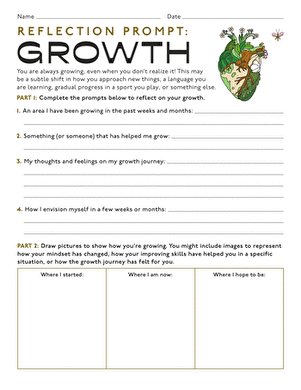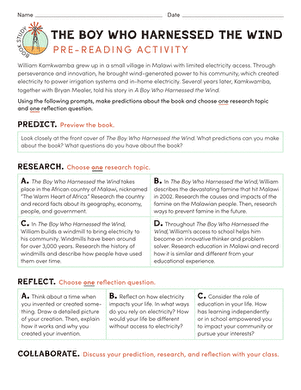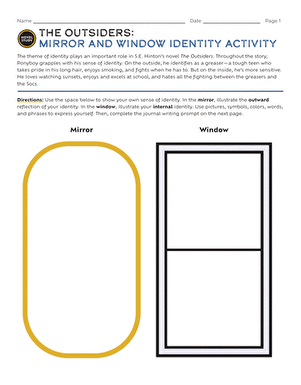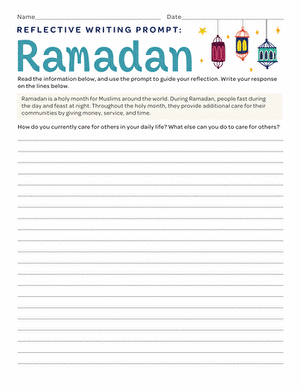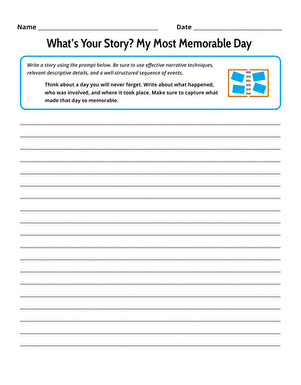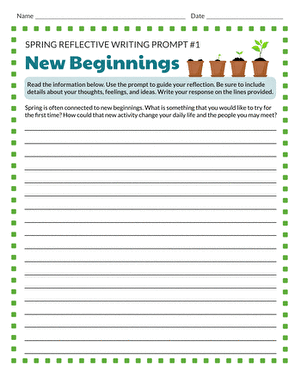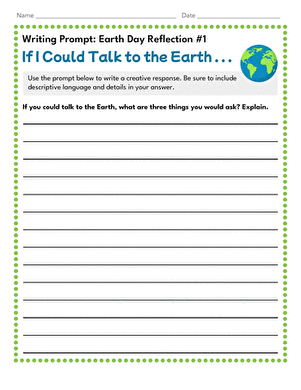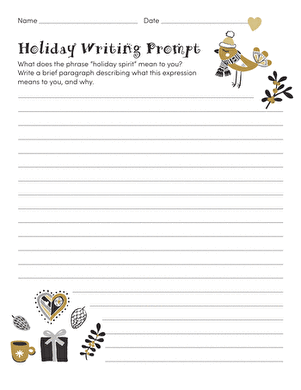Reflective Writing Resources
121 results
English Language Arts
✕Sort by:
121 results
Sort by:
About Reflective Writing Resources
On Education.com, reflective writing resources guide students in expressing thoughts, analyzing experiences, and making connections between ideas. These materials often include structured prompts, example essays, and classroom activities that encourage critical thinking and personal connection. By using worksheets and online exercises, students learn to organize their writing, articulate their perspectives, and deepen their understanding of course concepts. Teachers and parents can access ready-made scaffolds that support writing practice across grade levels.
Reflective writing resources on Education.com provide examples, prompts, and templates to help students connect classroom learning to personal experiences. Materials include journal pages, essay guides, and critical thinking exercises designed to foster self-awareness and analytical skills. These resources enable students to reflect on lessons, assess their progress, and consider future learning options while reinforcing writing fundamentals. Using structured materials makes it easier for educators to sequence instruction and for learners to develop confidence in expressive writing.
Educators and parents can utilize reflective writing activities from Education.com to strengthen students’ ability to analyze experiences and communicate ideas clearly. As they browse printable worksheets, online exercises, and lesson plans, users can find resources thatprompt thoughtful responses and structured essays. This approach helps develop writing abilities, boost confidence, and promote intellectual engagement at all grade levels. Structured reflection resources also provide adaptable tools for assessment and individualized feedback.
Reflective writing resources on Education.com provide examples, prompts, and templates to help students connect classroom learning to personal experiences. Materials include journal pages, essay guides, and critical thinking exercises designed to foster self-awareness and analytical skills. These resources enable students to reflect on lessons, assess their progress, and consider future learning options while reinforcing writing fundamentals. Using structured materials makes it easier for educators to sequence instruction and for learners to develop confidence in expressive writing.
Educators and parents can utilize reflective writing activities from Education.com to strengthen students’ ability to analyze experiences and communicate ideas clearly. As they browse printable worksheets, online exercises, and lesson plans, users can find resources thatprompt thoughtful responses and structured essays. This approach helps develop writing abilities, boost confidence, and promote intellectual engagement at all grade levels. Structured reflection resources also provide adaptable tools for assessment and individualized feedback.



